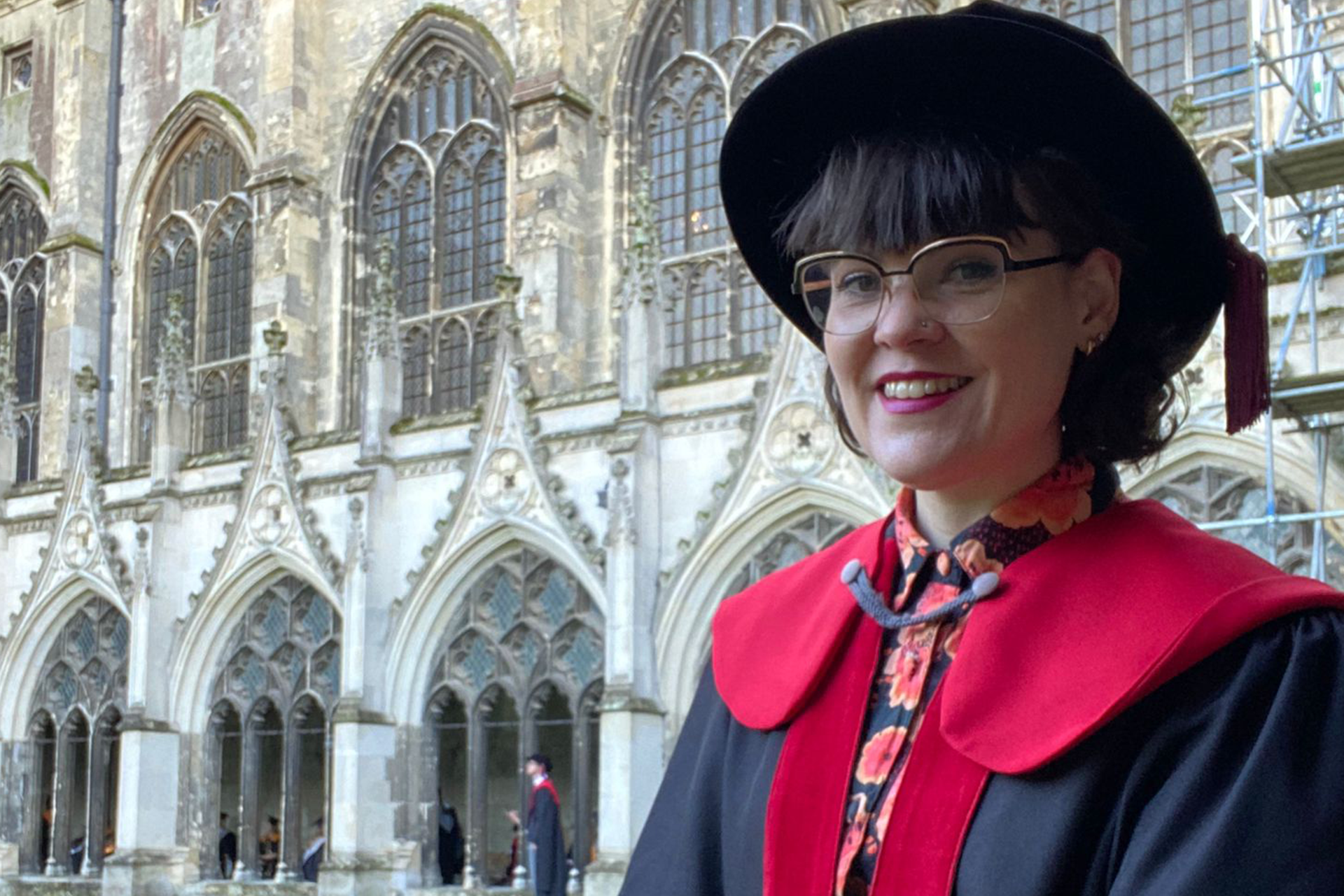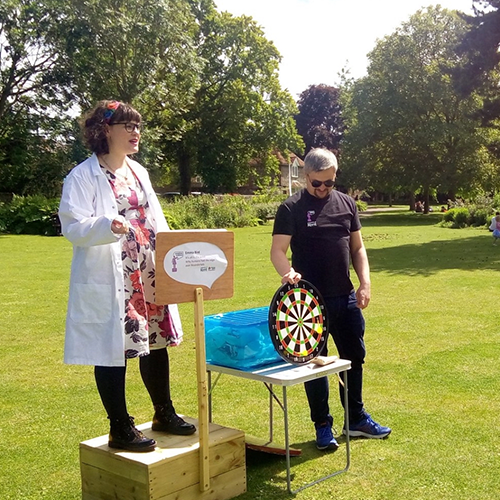Emma Bird studied for a PhD in Anthropology and graduated this year – hurray! Emma is now a Researcher at the Natural History Museum in London, in the Centre for Human Evolution Research. Emma’s role is diverse and no day is the same: archiving, assessing skeletal collections, statistical analysis, and manuscript drafting are some of the many varied tasks.
What course did you study at Kent? What attracted you to the course?
I studied a PhD in Anthropology, specifically palaeoanthropology. Kent has the capacity and resources to undertake globally leading research in digital palaeoanthropology.
What are you doing now?
I am working as a research assistant for the palaeoanthropologists at the Natural History Museum in London. My role is highly diverse and includes working on archiving, assessing the skeletal collection, data collection, statistical analysis and manuscript drafting.
How did your studies prepare you for your current position?
As the field of anthropology moves more and more towards digital methodologies, the skills I gained at Kent put me at the forefront of the field and were critical to me securing this role.
Could you describe a typical day in your current role?
I would say there is not a typical day as what I am doing depends who I am working with and where they need assistance. This week, I am collecting and preparing data for a new research project on child health in Medieval England. I have been reconstructing and cleaning surface scans of humeri, and I am preparing to study the physical skeletal collection next year to expand our current sample.
What do you love most about your role?
I was able to step so easily into this role because of my experiences at Kent. It was a seamless transition from my PhD without a lot of the anxiety and stress that taking on a new role can have.
What steps did you take to get into your current role? What was the process during/after University?
I started to think about my post-PhD life quite early and sought advice and guidance from my supervisors. I kept an eye on advertised roles during my PhD as well; my current position was advertised during my third year so I applied before I had completed my thesis.
What employability support did you get from the University?
I was lucky enough to have supportive and proactive supervisors so didn’t take up any of the support offered by the university, although the communication about these events was very clear and frequent so I was aware of where and how I could seek help if I needed it.
What skills did you gain at the University, not just from your course that you use now in your career?
The opportunity to teach was a very important skill I gained. Many PhD students don’t get this opportunity and it gave me a more rounded skillset for the future. I am undertaking postgraduate teaching and marking in my current role, so it has come in handy already. I also took a number of the courses offered by the Graduate School, and I would have had a much, much harder time with the statistical component of my work without the courses in SPSS, R and Python. And again, I am continuing to use the skills I learned in R and Python in my new role!
What advice would you give to somebody thinking of coming to Kent?
The University of Kent is a very welcoming and friendly university and you can foster personal and professional relationships with your supervisors, fellow academics and students within your wider school. This is very valuable for developing your career and making it through the tough PhD process. Also – take advantage of the Graduate School, because they offer valuable and diverse courses and resources that will make your life a lot easier and provide an opportunity to diversify your skillset.
What’s your best memory of studying at Kent?
I attended my graduation last week and the ceremony was incredibly special. The whole team put on an amazing and seamless event. It certainly was an incredible once-in-a-lifetime event in an amazing cathedral that really celebrated the hard work and achievements of all the graduates. Besides this one-off amazing event, Anthropology and Conservation had an open lunchtime group where anybody could join, eat lunch together and take a break. You were always encouraged to join to ensure you took that much-needed time off in the middle of the day to socialise and eat. These were often the best part of the day!
Emma Bird studied Anthropology PhD at Kent.
This is a repurposed version of a blog post and may differ from the original. View the original blog post.


